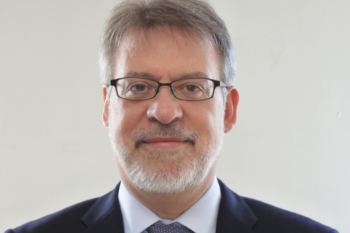Events
Investments Sought in High-Tech Areas for Economic Expansion
—– Serbia and Japan have enjoyed friendly relations for 136 years, and Prime Minister Abe visited your country in January. How do you see the development of our bilateral ties?
Our relations with Japan were always good. Prime Minister Abe’s visit was the first visit of the Japanese Prime Minister to Serbia. Although Prime Minister Nakasone was in Yugoslavia during the cold war, there is a clear difference between Serbia and Yugoslavia. Following the Congress of Berlin in 1878, Serbia became an internationally recognized independent nation. King Milan I wrote to Japanese Emperor Meiji to notify this, and Emperor Meiji replied. This marked the beginning of the friendly relations between the two countries. After the dissolution of Yugoslavia, Serbia has been internationally recognized for more than 20 years. Prime Minister Abe’s visit signifies the beginning of a new phase of our friendly ties. The Japanese government now recognizes Serbia as a safe and key factor in the Balkan region, and it sends a strong signal to Japanese companies that encourages trading with and investing in Serbia.
—– As Ambassador to Japan, which areas would you like to strengthen in the relation with Japan?
Among my priorities as the ambassador to Japan is to promote Serbia and to expand the economic cooperation between Serbia and Japan. We are particularly hoping to attract more Japanese investments in the high technology areas and to have more experts sent over. We’re trying to speed up the negotiation of the double taxation evasion agreement in order to attract more investments from Japan. I’m very fond of the Japanese model of economic development that I learned a long time ago at Sophia University. This was helpful for me in going through the transition to the market economy in Serbia, and it is still helpful in a practical way when I visit Japanese companies once or twice a week. In cultural exchange, we have held events in Fujimi, Saitama (the sister city of Šabac, Serbia), and our Tokyo Olympics host towns of Hofu (volleyball) and Kashiwazaki (water polo). And we are planning to expand our exchange events to many other locations in Japan.
—–The Republic of Serbia was a leading successor to the former Yugoslav Federation, but the economy suffered from many adversities. What structural reforms are being implemented to rehabilitate and stabilize the economy?
The unique economic model of the former Yugoslavia was called self-management. Unlike the countries of the Soviet Bloc, we more openly traded and communicated with the Western countries. In the 2000’s, we quickly switched to the market economy, many of the old big systems closed down, and we now have many smaller private companies. Serbia is maintaining good relationships with the EU and Russia, although the sanctions caused us to fall behind in our quest to join the EU. We have a free trade agreement and a visa-free entry agreement with the EU countries. In preparation for accession to the EU, we are working on administrative and financial reforms and promoting investments.
—–Would you tell us investment opportunities and promising sectors in Serbia?
The business environment is improving, which includes the preferential treatment for foreign investments. Serbia can be a good export base because of its easy access to the European markets and freedom of movement. Our qualified and cheap labor is also attractive to foreign countries. The Serbian agriculture sector is very competitive, and our food industry is well-developed. We are providing frozen fruits and wines to the Japanese market. Another major industry is mining which Germany, UK and France came to exploit in the pre-war period. Some Japanese manufacturers such as JT, Panasonic, Yazaki Corporation, etc. have started their operations in Serbia. And with Japan’s cooperation, we started the sewerage management and waste management projects, and we are also building one of the world’s largest fuel-gas desulfurization facilities for coal-fired power generation.
—– How has Serbia’s EU accession process progressed? What issues are the key challenges for Serbia?
Serbia, unlike any other candidate countries, has the biggest number of required chapters for joining the EU. However, the normalization of relations with “Kosovo”, is the heaviest and most important political issue. The government of Serbia will not agree to secession of the “Kosovo” province which is 15% of our territory. Since “Kosovo” was placed under UN administration, the declaration of “Kosovo”’s independence in 2008 is illegal. Mediated by the EU, Serbia started the dialogue with “Kosovo”, and the Brussels Agreement was concluded in 2013. Although not satisfied, we made a concession regarding “Kosovo”’s self-government. After everything is done in the negotiation, Serbia’s EU accession requires the EU’s approval; there are 5 of the EU countries against “Kosovo”’s independence. Since the EU is currently struggling with the issues of refugees and Brexit, the process of Serbia’s and other candidate countries accession is becoming all the more complex.
(Interview by Shu Tamaru, FEC Counsellor)
